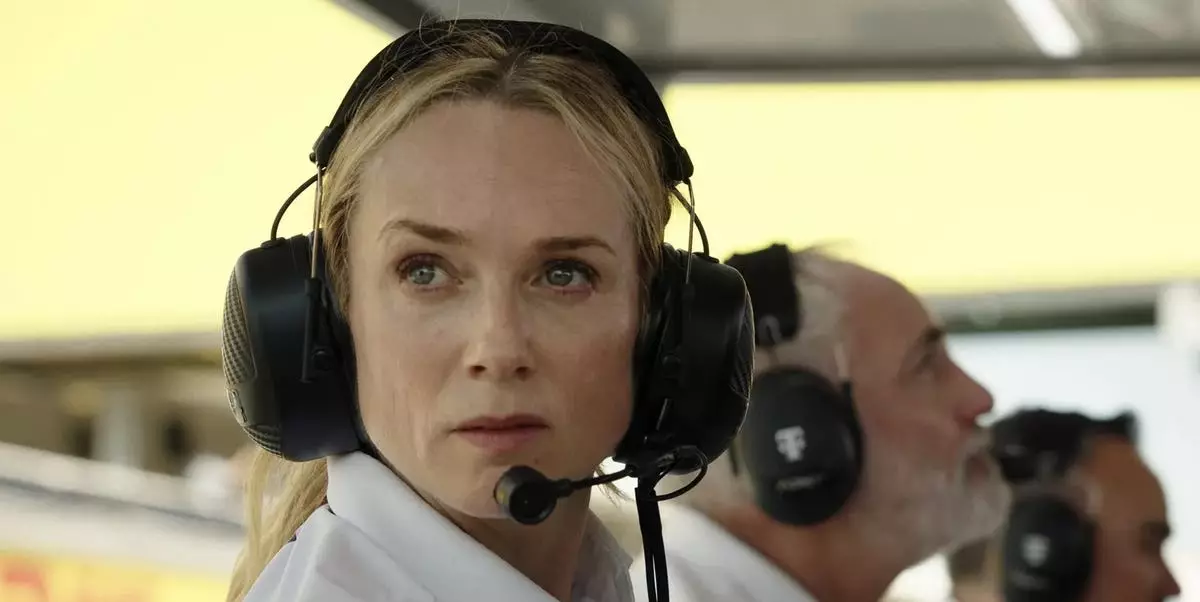While actors like Damson Idris and Brad Pitt dominate headlines for their roles in the latest F1 blockbuster, the true game-changer in this cinematic journey is Kerry Condon. Her portrayal of Kate McKenna, a tech-savvy director steering a fictional F1 team, isn’t just acting; it encapsulates the essence of innovation, resilience, and authenticity often overlooked in motorsport narratives. Condon’s approach went far beyond rote imitation — she leaned into real stories, real struggles, and real trailblazers who have shaped the sport’s evolution. Her commitment underscores a profound truth: meaningful storytelling requires representation rooted in genuine experiences, especially for underrepresented communities.
From Fiction to Authenticity: The Inspiration Behind the Character
Though Kate McKenna isn’t based on a single individual, her persona pays homage to multiple pioneering figures within F1. Central among them is Bernie Collins, a formidable Irish engineer and strategist whose career trajectory mirrors some of the archetypes Condon sought to embody. Collins’ journey—from her early days at Queen’s University Belfast studying mechanical engineering to leading race strategy at Aston Martin—serves as a beacon of possibility for aspiring women in STEM. Condon didn’t merely observe her; she internalized her story, drawing parallels from their shared Irish background and educational paths to craft a character rooted in reality. This attempt to humanize technical mastery challenges the typical stereotypes that surround motorsport — often seen as a male-dominated realm — by highlighting that expertise and leadership transcend gender.
Amplifying Marginalized Voices in a Male-Dominated Arena
In selecting advisors like Ruth Buscombe, Condon further emphasized the importance of authentic representation. Buscombe’s career is emblematic of perseverance; her trajectory from aerospace engineering at Cambridge to key strategist roles at Ferrari, Haas, and Sauber exemplifies how talent can defy gender and background barriers. Condon’s decision to incorporate such figures signals a conscious effort to elevate those behind the scenes, acknowledging the vital contributions of women engineers who are often invisible in popular narratives. By intertwining these real stories into her performance, Condon not only enriches her character but also challenges audiences to rethink who gets to be front and center in motorsport stories.
Why These Personalities Matter in a Broader Context
The significance of these behind-the-scenes influences extends beyond cinematic applause. It underscores a vital cultural shift: recognizing and celebrating diverse pioneers in fields still wrestling with gender biases. Representation in media isn’t merely about visibility; it’s about validation and inspiring change. Kerry Condon’s dedication to learning from actual figures like Collins and Buscombe exemplifies a commitment to authenticity that can ripple outward, encouraging more women and minorities to see themselves in roles historically reserved for a select few. This isn’t just about making a good movie; it’s about rewriting the narrative of who belongs in the racing world and empowering new generations to break barriers.
The Power of Narrative Crafting in Shaping Perception
What makes Condon’s portrayal particularly compelling isn’t just her meticulous research, but her ability to weave these real-world influences into a compelling character arc. She recognizes that stories of innovation, leadership, and resilience—themes central to her character—resonate far beyond the racetrack. They challenge stereotypes, foster empathy, and cultivate a broader appreciation for the complex technical and strategic layers that define modern F1. As audiences become more aware of the stories behind the stories, the line between fiction and reality begins to blur, creating a more inclusive, nuanced understanding of the sport and the people who power it.
In the end, Kerry Condon’s role in this film is a testament to the transformative potential of representation—showing that authenticity and storytelling are powerful tools for societal change. Her work reminds us that progress in sports and media alike is fueled by those willing to tell the stories that matter, honoring the untold heroes shaping the future from behind the scenes.

